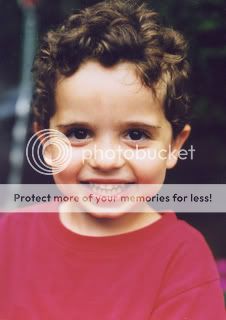Late-Talking Children
 I put this blog together after one of my Yahoo/Multiply friends, Papa, reminded me that Albert Einstein was a really late-talker. So it got my wheels turning…
I put this blog together after one of my Yahoo/Multiply friends, Papa, reminded me that Albert Einstein was a really late-talker. So it got my wheels turning…
Introduction from WebMD:
Ifems to be a late talker, when is the time to seek help? What’s normal? By Richard Trubo WebMD Feature Brunilda Nazario, MD
“Mama. Dada.”
Those are often the first words spoken by a baby, and they can turn an ordinary day into a memorable one for parents.
But if children seem to lag behind their peers in their ability to talk, it can create anxiety and plenty of sleepless nights among parents, and perhaps prompt worried phone calls to the pediatrician, asking, “Why isn’t my child talking?” Parents may remember that an older sibling was much farther along in his language development at the same age, maybe speaking in two- or three-word sentences at age 2 with ease. And as time passes, their apprehension may turn to panic.
In majority of cases, however, there’s no need for alarm. Most children develop language at their own pace, and there is a broad range of normal, says Diane Paul-Brown, PhD, director of clinical issues at the American Speech-Language-Hearing Association (ASHA). “Some children develop language at a faster rate than others,” she says. Even so, there are times to have a child’s speech and language evaluated.

Laurita’s son Matthew at around four years old
You would never think by looking at my son, who now is twelve, that he was a late-talker. He looks and acts perfectly fine and you would never think he had a “problem.”
He did not have normal speech development. His speech was severely delayed. The realization didn’t kick in until someone mentioned to me at a family gathering that Matt didn’t respond to his name. At the time, I think he was only 2 1/2. He did not say, “mama” or “dada” or much else for that matter.
The first thiing I did was to have Matt’s hearing checked, which turned out to be normal. Next, he had speech and language evaluations by the county done which showed he was entitled to speech therapy several times a week.
Basically, the therapy consisted of someone coming to our house for about 45 minutes to try to engage Matt into some interactive games to get him to started speaking. I also put him in a nursery school program three times a week to expose him more to language from other children who would chatter away to him, especially the girls.
The interesting thing was that he comprehended everything around him, but he was not able to vocalize it.
After Matt was three, he began using very simple 4 word sentences like, “I want some milk”, and sentences to communticate basic needs, but he was not conversational.
The therapy was terminated around the time Matt was four, because his speech was developed enough.
So Matt went on to elementary school, though he occasionaly still needed help along the way with communicating his needs if he didn’t understand a lesson plan or if there was an issue with another kid, etc…But by the time he was done with elementary school, he was completely caught up to other kids in just about every way.
Today, I would say the Matt’s strength’s are mostly writing and he has said that he would like to become an author and illustrator. He does very well in mathematics, and he is a chess master. He plays tennis and baseball, and has many friends.
The thing is, that a kid’s not going to speak if he isn’t ready, whether it’s a developmental delay or otherwise. My son did not say what he wanted. He would merely point to what he wanted, and I would say, “Oh, you want milk”, or whatever it was. Most of the time, these things correct themselves on their own, but it’s good to get it checked out in case there’s an underlying issue that needs to be addressed, like ear infections, which I later found out can cause communication delays. Most of the time, there’s no need to panic. – Laurita

From the web:
Albert Einstein was born to a middle-class German Jewish family. His parents were concerned that he scarcely talked until the age of three, but he was not so much a backward as a quiet child. He would build tall houses of cards and hated playing soldier. At the age of twelve he was fascinated by a geometry book.
“It is almost a miracle that modern teaching methods have not yet entirely strangled the holy curiosity of inquiry; for what this delicate little plant needs more than anything, besides stimulation, is freedom.” – Albert Einstein
|
strongwilledwoman wrote on Dec 20, ’07
What a beautiful child, and he appears to have many talents. He will do wonderful in life.
|
|
starfishred wrote on Dec 20, ’07
MY YOUNGER DAUGHTER DIDN’T TALK TILL SHE WAS 2 BUT THEN IN COMPLETE SENTENCES AND ONLY WHEN SHE FELT IT WAS IMPORTANT.MY PEDIATRICIAN USED TO SAY WHEN I COMPLAINED TO COME BACK AND TELL HIM IF SHE DIDN’T TALK BY THE TIME SHE WAS 21.WELL LIKE HE SAID THE PROBLEM REALLY WASN’T A PROBLEM.
|
|
lauritasita wrote on Dec 20, ’07
I don’t know if this is hereditary, but I remember having the same issue growing up, like not being able to find the right words.
|
|
sanssouciblogs wrote on Dec 20, ’07
Hey, that’s my cutie pie nephew we’re talking about!!
Language delays can be familial. Some children can be delayed in expressive and/or receptive language or both. Matt’s delay was in expressive language. The trend is now to have Early Intervention in the home; New York State picks up the tab. It is a great help to get youngsters on their way to age appropriate communication; the help of therapy– familial intervention and speech modeling, a child can be repatterned, so to speak. Why should a child speak if pointing achieves his goal? Matt was able to vocalize–there was nothing wrong with his physical apparatus–it was the ability to verbalize–which is brain centered. And expressive language requires many skills we don’t think about–receptive language, word retrieval and integration of thought. Having worked with language delayed and impaired youngsters my whole career, as well as with the deaf, I can say that the impact of delayed communication can be devastating, especially if it affects socialization. Sometimes these issues do self correct with time, but there can be other issues such as autism, another language disorder, and early detection is crucial. So when in doubt, check it out. And if you feel that there is something wrong with your child, don’t accept the placations of a pediatrician. Go to a specialist. Sometimes a mother knows! |
|
sanssouciblogs wrote on Dec 20, ’07, edited on Dec 20, ’07
lauritasita said
yes, it’s a language processing problem and I see it in our mother as well.
|
|
lauritasita wrote on Dec 20, ’07
Thanks sis, for your relative and informative comments.
|
|
redheadgirl4 wrote on Dec 20, ’07
My little niece had the same issue. She communicated so well non-verbally that it took us a while to realize she wasn’t communicating verbally. She is all caught up now, and I kind of think she was just waiting until she was ready to speak.
That picture of your son is absolutely adorable!!!! |
|
sweetpotatoqueen wrote on Dec 21, ’07
Your son is a gorgeous child! I have always found it perplexing that we are so engrained in generalization that have little to do with the uniqeness of each child. My nephew was a late speaker…he has since been diagnosed with autism. As a 3-4 year it was easy to see he was “off” on receptive skills as well.
|
|
lauritasita wrote on Dec 21, ’07
Seriously though, I think early intervention is wonderful.
|
|
lauritasita wrote on Dec 21, ’07
It’s important to know that the earlier the intervention is done, the better it is for the child later.
|

 I remember having the same issue growing up, like not being able to find the right words.
I remember having the same issue growing up, like not being able to find the right words. 
Comments
Late-Talking Children — No Comments
HTML tags allowed in your comment: <a href="" title=""> <abbr title=""> <acronym title=""> <b> <blockquote cite=""> <cite> <code> <del datetime=""> <em> <i> <q cite=""> <s> <strike> <strong>